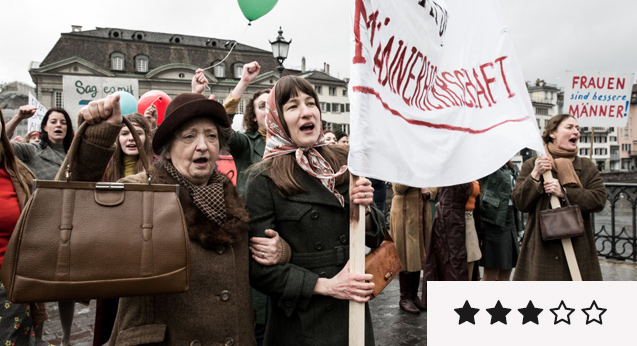The Divine Order review: a remarkably safe film about a feminist awakening

Set in 1971 in a remote Swiss town, The Divine Order follows housewife Nora as she undergoes a feminist awakening, and sets about trying topple the patriarchy. Or at least, help get women the right to vote. As the film points out, New Zealand had already changed its laws, so why hadn’t Switzerland?
Pointing out the horrors of the very recent past, Mad Men-style, is the aim of the game here. The town has been sheltered from by the cultural revolution happening in other parts of the world, and Nora quickly comes up against the bad opinions of a lot of grumpy men.
It’s a worthy reminder, even if writer/director Petra Volpe is painting with a brush the width of a hornussen field. One scene has Nora reading a book on women’s suffrage, eyes full of wonder as the soundtrack swells. Clumsy, yes, but elsewhere Volpe shows flashes of righteous anger. The men in this film really are complete shits.
And she takes time to illustrate the way misogyny is perpetuated. The invective directed at Nora is most unsettling when it’s coming from her own young sons, already well aware of their privilege. Later their grandfather will tell one of them “Don’t start crying, you’re not a girl”.
The Divine Order stays relatively cheerful before tumbling into melodrama in its final third. It wants to be a crowd pleaser, but it keeps running headfirst into cliché, exemplified by music choices like “Respect” and “You Don’t Own Me”. That over-familiarity tends to mute any real emotion.
Things end on an uplifting note (spoiler: women have it slightly better now), but also on the culmination of a frankly sexual plot strand that feels very European. It’s the one edgy element in this remarkably safe film.
Find times & tickets for The Divine Order
















